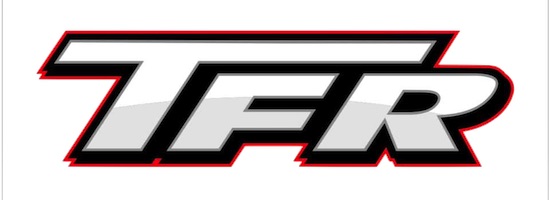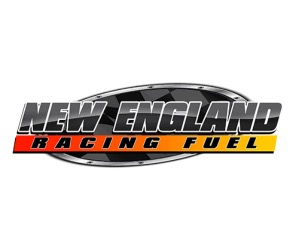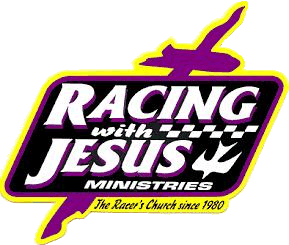
After long delay because of rain and a wild closing lap, Michael McDowell scored victory in the Daytona 500. It was the first career Cup Series victory for McDowell. So soday’s Daily Poll question is, who is the biggest upset winner in Daytona 500 history? Vote below.





















All of the above.
It will forever be Cope. Cope did it in an age where not every car had a chance to win like nowadays. Look at all the drivers who got their first and only win(s) on speedways. Cope also did it before engineers got involved and ruined everything.
Benny Parsons?
I seem to remember in interviews he himself was surprised to win.
That’s a list that will live in infamy.
🌈JD🌈 blurted, “Cope also did it before engineers got involved and ruined everything.”
When Mark Martin, Jeff Gordon and a few other well known drivers were asked what has been the biggest advancement to racing, they all answered: Engineering. And only Engineers can do engineering.
The biggest improvement, they all agreed, was adding Engineering expertise to the plan.
Intuition can only go so far. Engineering continues long after intuition ran out of steam. Long ago, racing was all about bigger engines, bigger tires, more cubic inches. Once speeds were beyond dangerous, it became a sport of safety rules, finesse, attention to details, and only Engineering can do that.
Memory (knowing) is to understanding as intuition is to engineering. 🌈JD🌈, don’t try to understand that, you’ll hurt yourself.
The Bleacher Report shows Bayne as the biggest upset winner it being his only win. in 9 seasons. Cope may have had two wins but his career of over 30 years with spotty appearances and bad finishes has to be the tie breaker. 428 races with only 6 top 5’s and two of them for wins.
This is however New England and how about a couple of our guys pulling rabbits out of their hats.
#1. Greg Sacks-1985 Firecracker 400. R&D car destined to park after a few laps turns out to be so good they leave it out and it wins. One of only 3 top 5’s in 263 Cup races for Sacks spanning 19 years.
#2. Ron Bouchard 1981 Talladega-nips Waltrip and Labonte in a three way at the line in a shocker.
When exactly did engineers get their hooks into the sport and ruin it? It could have been Alan Kulwicki with a degree in mechanical engineering that started 5 years before Cope’s unlikely win. Ray Evernham certainly contributed to making racing more engineering focused as crew chief for Jeff Gordon. The fact however is that the major car manufacturers have been involved with teams forever providing engineering consultation. It’s more likely the sport simply evolving like all motorsports have and blaming engineers the convenient scape goat for the changes that took place.
Oh boy JD. Blaming engineers was a bad idea. Our resident raceday engineer will not let this one slide.
Engineers have been working in nascar and short track racing since the 1960’s. Ford provided engineers to Holman Moody, Chrysler provided engineers to Ray Nichols Engineering. Smokey had access to the same GM engineers(Jim Musser/Frank Wenchell/Tom Goad) who were resident with Jim Hall on the Chaparral program. In the 1970’s Ed Howe hired Herb Brinn from GM to engineer and develop his short track chassis and components, Penske had Mark Donohue as engineer and driver. In the 80’s, Herb Fischel from Chevy Racing had Richard Childress hire his nephew Bobby Hutchins as RCR’s first resident engineer, and Terry Satchel left GM to work for Leo Jackson to develop the cars Harry Gant drove, Nick Oleda moved from Penske Indy to his nascar side, Jack Roush owning an engineering company was all about using engineers. In 90’s, Rick Hendrick hired Rex Stump, Corvette chassis engineer, to work with Evernham, and after that pretty much every major cup team had established an engineering department.
It’s not just the availability of engineers that have advanced the upper levels of stock car racing, it is the development and access to increasingly capable computational power and the tools it enables. Even the engineers of the 60’s/70’s/80’s could not have imaged the complexity of developing full vehicle dynamic models for chassis, tire, drive line, and controls systems to run in real time driver in the loop simulation, or the availability of automated tooling and manufacturing to minimize variation and make complex components.
Biggest Daytona 500 upset, Tiny Lund.
Upset Daytona winners Doug. My vote, Derrike Dope.
JD I do agree with you for the most part. The Engineers did their best work on the SAFETY aspect of the cars. With the Aero packages they now run, NASCAR CUP, for the most part is UNWATCHABLE,BORING and this from a 50+ year fan. The cars do NOT look like their “NAMEPLATES” except for the nose and tail. Alas, we will NEVER get back to those days.
It takes engineering to go fast.
Many of you overlook tires, and the engineering that goes into tires to enable a car to reach those speeds. Long time ago, tires were the weak link and hobbled cars. Engineering developed tires to withstand those speeds. The tires in F1 had to be detuned to slow cars down.
Early on, most engineering was focused on making more horsepower. Once the horsepower got to high levels and speeds were getting higher and higher, it became apparent that a stock car, as in one that rolled off the factory line, was not safe for those speeds. Even when reinforced with a roll cage. Those cars wadded right up, and they were super flexible.
Once speeds got to the point where it was dangerous and no longer safe to pursue higher speeds, rules (safety and speed limits) came in to play and all efforts have been focused on getting right up to the edges of those rules. And how to get more speed in turns where all out horsepower is not required. And now that there is horsepower limiting, aerodynamics is crucial to reduce drag, as is drag and friction reduction in the engine and drivetrain.
What engineering school did Larry Mac attend? Ray Evernham? Richard Childress? Chad Knauss? They all came up through the bullrings and learned how to make cars go fast the old fashion way.
Once the teams hired engineers drag, aero, downforce became key components and made Cup racing boring as (bleep). Nascar turned into Indy. When was the last time you have seen a blown motor in Cup? Cars can’t pass on the 1.5 tracks. That’s why we have stage racing and 7 road course events in 2021. Nascar can’t undo what the engineers did to the cars. The new car next year won’t fix anything either Go watch a race from the 1980s. So much better it isn’t even funny.
Engineers achieved so much speed, it was no longer safe. Cars became airborne, full roll cages were needed, etc. Then horsepower was capped to contain speed, and engineers were need to provide the finesse.
Larry Mac, Evernham, Childress, Knauss are not engineers, they had engineers telling them what to do.
🌈JD🌈, I know engineers, and you are no engineer. Not a chance.
Hippies, women’s libbers, lefties, tree huggers, righties, Jews, holy rollers, plus the full gamut of slurs directed at people of color. Essential sneers when venting vague grievances at groups to blame them for some perceived injustice.
Never thought I’d see “engineers” used as a sneer.
Go listen to the latest Jr Download. Larry Mac wasn’t using engineers. Neither was Knauss or the others.
Engineers are everywhere, except sales and marketing.
Engineers have been involved, the non-engineers just don’t know it.
Hey 🌈JD🌈, any engineers involved in your car?